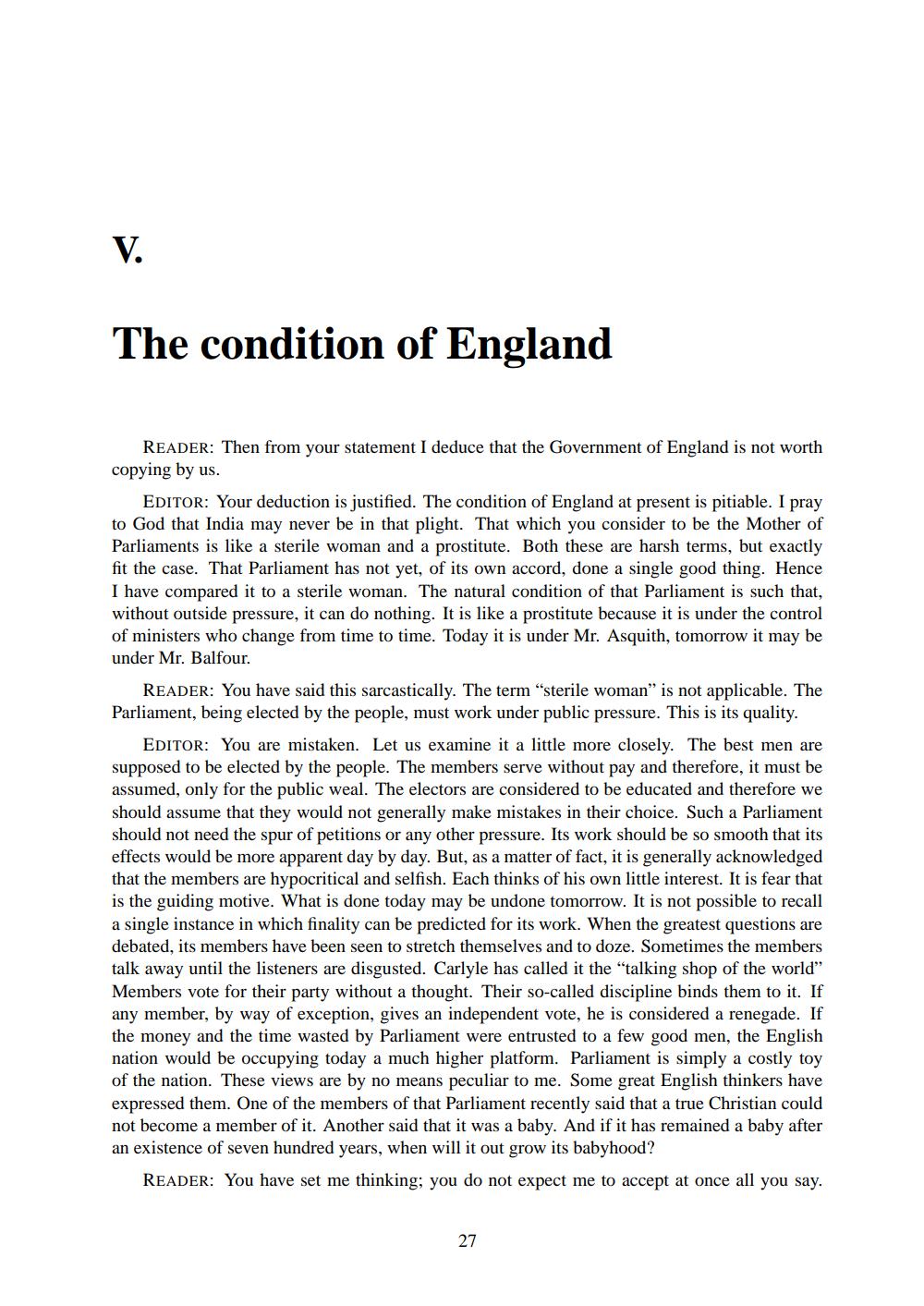________________
V.
The condition of England
READER: Then from your statement I deduce that the Government of England is not worth copying by us.
EDITOR: Your deduction is justified. The condition of England at present is pitiable. I pray to God that India may never be in that plight. That which you consider to be the Mother of Parliaments is like a sterile woman and a prostitute. Both these are harsh terms, but exactly fit the case. That Parliament has not yet, of its own accord, done a single good thing. Hence I have compared it to a sterile woman. The natural condition of that Parliament is such that, without outside pressure, it can do nothing. It is like a prostitute because it is under the control of ministers who change from time to time. Today it is under Mr. Asquith, tomorrow it may be under Mr. Balfour.
READER: You have said this sarcastically. The term "sterile woman" is not applicable. The Parliament, being elected by the people, must work under public pressure. This is its quality.
EDITOR: You are mistaken. Let us examine it a little more closely. The best men are supposed to be elected by the people. The members serve without pay and therefore, it must be assumed, only for the public weal. The electors are considered to be educated and therefore we should assume that they would not generally make mistakes in their choice. Such a Parliament should not need the spur of petitions or any other pressure. Its work should be so smooth that its effects would be more apparent day by day. But, as a matter of fact, it is generally acknowledged that the members are hypocritical and selfish. Each thinks of his own little interest. It is fear that is the guiding motive. What is done today may be undone tomorrow. It is not possible to recall a single instance in which finality can be predicted for its work. When the greatest questions are debated, its members have been seen to stretch themselves and to doze. Sometimes the members talk away until the listeners are disgusted. Carlyle has called it the "talking shop of the world" Members vote for their party without a thought. Their so-called discipline binds them to it. If any member, by way of exception, gives an independent vote, he is considered a renegade. If the money and the time wasted by Parliament were entrusted to a few good men, the English nation would be occupying today a much higher platform. Parliament is simply a costly toy of the nation. These views are by no means peculiar to me. Some great English thinkers have expressed them. One of the members of that Parliament recently said that a true Christian could not become a member of it. Another said that it was a baby. And if it has remained a baby after an existence of seven hundred years, when will it out grow its babyhood?
READER: You have set me thinking; you do not expect me to accept at once all you say.




